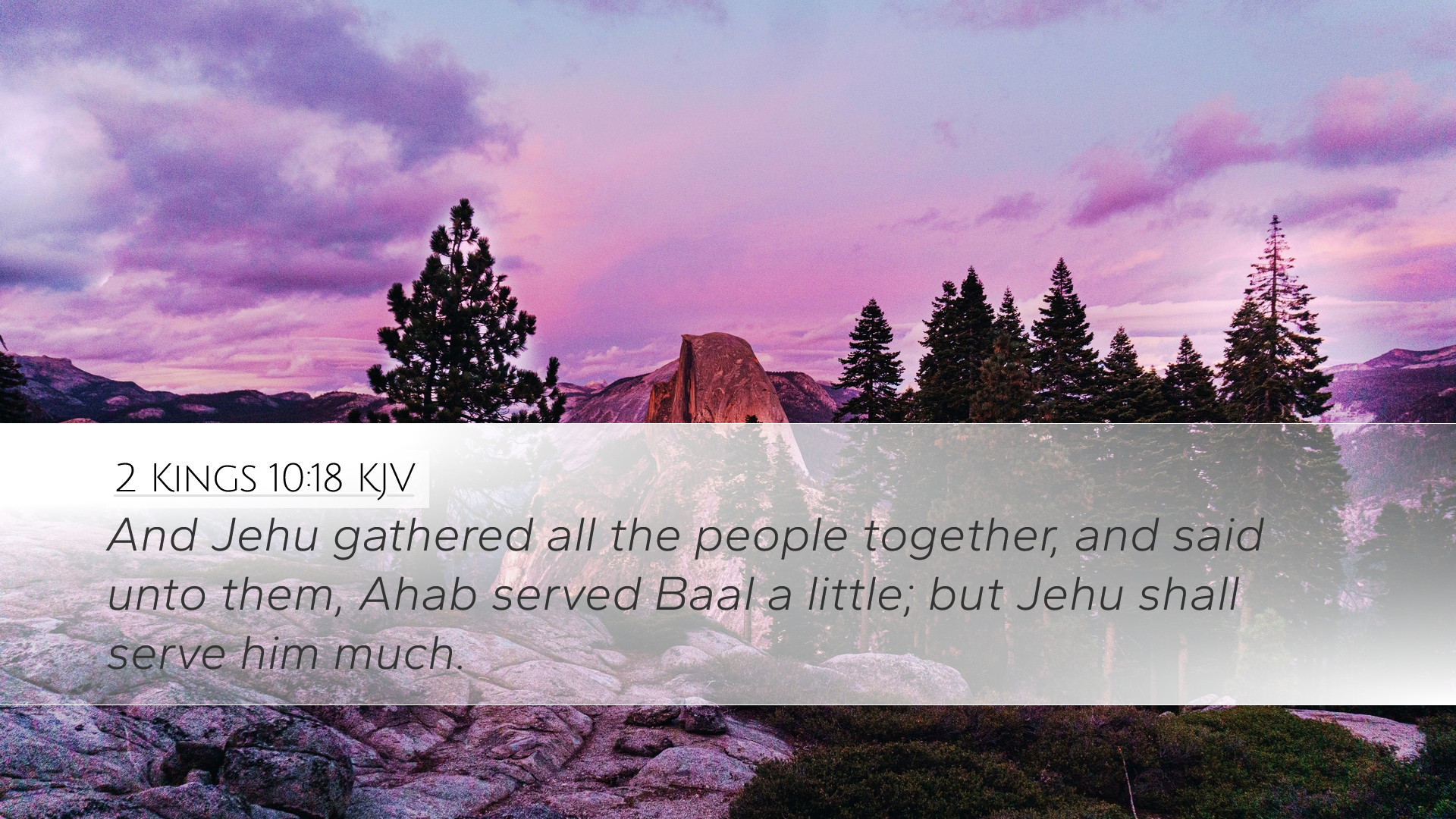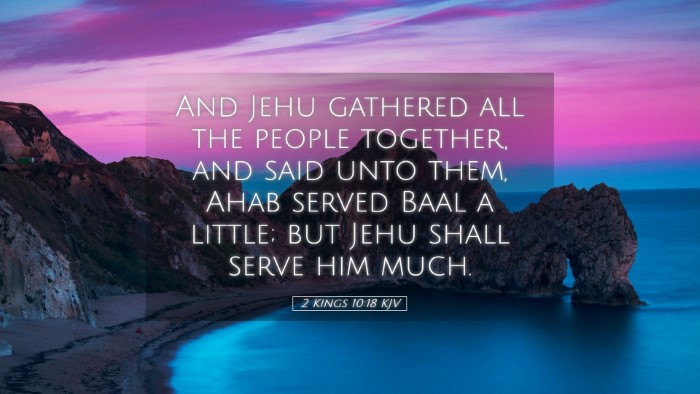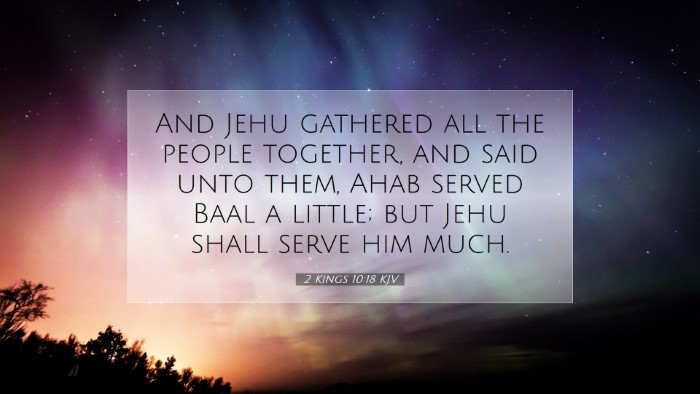Commentary on 2 Kings 10:18
2 Kings 10:18 provides a pivotal insight into the narrative of Jehu’s reign over Israel and his zealous action against the house of Ahab. It sets the stage for understanding both the character of Jehu and the theological implications of the events that unfold. Below is a synthesized commentary reflecting insights from renowned public domain commentaries.
Contextual Background
The context of 2 Kings 10 is critical as it follows the prophetic judgment against Ahab’s dynasty, which had led Israel into profound idolatry and sin. Jehu, anointed by the prophet Elisha, was tasked with executing divine judgment.
Verse Analysis
Text of the Verse: “And Jehu said, ‘Come with me, and see my zeal for the LORD.’ So he made him ride in his chariot.”
Jehu's Zeal for the LORD
This verse encapsulates Jehu’s determination to eradicate Baal worship from Israel. Jehu speaks of his “zeal for the LORD,” which indicates not only a personal commitment but also a prophetic empowerment to fulfill God’s judgment. The term “zeal” is particularly significant, implying a passionate fervor that drives Jehu’s actions.
- Matthew Henry notes that Jehu's enthusiasm was thus not mere fanatical fervor but was grounded in a sincere devotion to the covenant with Yahweh, aligning with the actions taken by Elijah.
- Albert Barnes emphasizes that Jehu’s zeal serves as a model for genuine dedication to God’s purposes, illustrating that true zeal must direct one towards righteousness and away from sin.
- Adam Clarke adds that the invitation to “come and see” suggests a transparency in Jehu’s intentions, as he sought to display his faithfulness to God's commands through visible actions.
The Chariot as a Symbol
The act of making someone ride in his chariot symbolizes an entrenchment in power and alliance. Jehu commandeers political and prophetic legitimacy, using this symbol of authority to rally support against Baal worship.
- Matthew Henry reflects on this symbolic gesture as Jehu asserting his divine mission. Leading another in his chariot is indicative of Jehu’s leadership role in carrying out God’s judgment.
- Adam Clarke expresses the notion that riding in the chariot highlights a partnership in Jehu’s ministry, suggesting that those who participate in God’s work share in His mission.
Theological Implications
In understanding Jehu's actions, we delve deeper into the themes of judgment, leadership, and divine zeal which resonate throughout the Old Testament narrative.
Judgment and Leadership
Jehu's reign reflects the biblical principle of leadership being held accountable to God’s standards. His zeal, while commendable, carries with it the weight of responsibility before God.
- Albert Barnes explains that this verse illustrates the necessity of political leaders aligning themselves with divine mandates, which provides a lesson for contemporary governance.
- Matthew Henry argues that a leader's passion must align with God’s will to be effective; a leader who acts out of self-interest undermines the very authority bestowed upon them by God.
Zeal in the Life of Believers
Jehu’s example of zeal serves not only as a historical account but also as an exhortation for contemporary believers. His passion calls for a reflective posture concerning how one actively pursues righteousness.
- Adam Clarke encourages modern readers to consider what it means to live with zeal for the Lord in a world that often promotes compromise.
- Matthew Henry reminds us that while commitment to God’s ways may lead to confrontation with societal norms, it is essential for the faith community to embody such a zeal.
Conclusion
2 Kings 10:18 encapsulates themes of zealous faith, divine judgment, and the functionality of prophetic leadership. Jehu’s declaration and his subsequent actions provide substantial lessons on the nature of true zeal before God. As pastors, students, theologians, and biblical scholars reflect on this verse, they are invited to evaluate their own fervor in the execution of divine calling, encouraging a fresh commitment to pursuing God’s purposes in both personal and communal dimensions.
This commentary serves to deepen understanding of Jehu’s actions in the larger biblical narrative and encourages the integration of zeal into the life and ministry of the church today.


